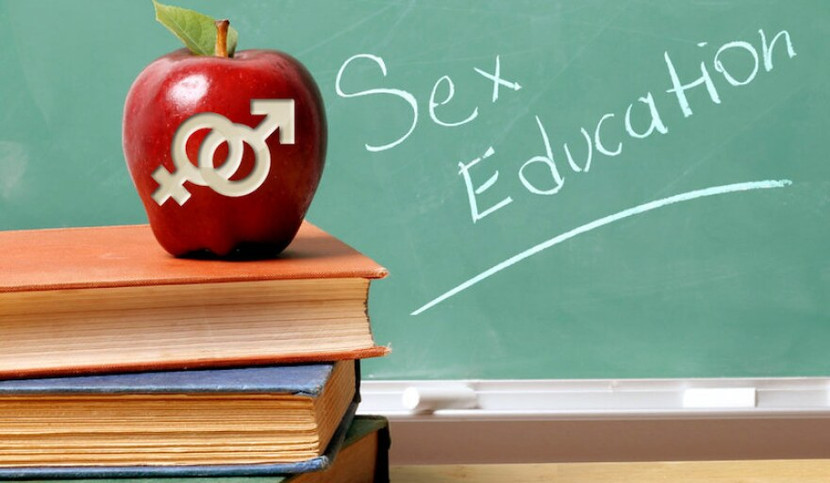Everyone knows about the importance of contraception and it is introduced to children as young as nine or ten as part of their science curriculum in school. The reproduction topic discusses the physical aspects of sex, how it works and how our bodies change during puberty to allow conception and pregnancy to take place. Basically, periods for girls and ejaculate with semen for boys (very, very basic run-through). But it also covers the topics of safe sex, how to protect yourself and what you are protecting yourself from. There are a number of contraception choices from the hormonal to the physical to the IUD and choice is obviously a personal thing. But in a very base sense, the impact of not using a condom is divided into two camps: unwanted pregnancy and STD transmission. Condoms are the only form of protection that covers both of these, hence why not using one can have a big impact on someone’s life.
But to understand the true implications of it, both mentally and physically, we need to dig a little deeper.
Learning about good sexual health.
Really important, right? Of course! This is often a fundamental part of the actual overall health and wellbeing of couples, individuals and families. If one person is suffering for some reason, then chances are they won’t be the only one affected. Ideally, having good sexual health requires a positive and respectful approach to sex from an early age and learning how to have safe, satisfying sex lives, no matter what gender or sexual orientation. What young people learn can affect their relationships throughout life, both positively and negatively.
But how do we achieve this lesson?
It most certainly does not have to be from the back benches of the science lab with a good, strong 20 children sniggering away, or in a book with limited info handed over with embarrassment by someone who means well. It can be handled in the home and the issues can be approached in a number of ways:
- -Having the knowledge and understanding of the risks and consequences of having unprotected sex. Ideally from someone with whom they have a close emotional relationship so the trust about the information is more likely to be there.
- -Having access to good quality and comprehensive sexual information. This is especially important if someone is feeling confused about their sexuality and doesn’t feel ready to explore within their immediate environment. There are plenty of online resources and support groups which can give excellent support, so it’s vital that young people know that is out there for them to reach out to.
- -Having an environment which is conducive to promoting sexual health in a firm and positive light.
Digging deeper.
General sex education is a good place to start from, but there’s no doubt that sexual health issues can go on to being complex and wide ranging. Take sexual orientation, for example. If you don’t fit neatly into one category and have confusing feelings and emotions, this is all part of creating a safe, sexual space which can be explored when you want. It’s perfectly normal to be attracted to girls and boys, especially through the teenage years with their crashing hormones obscuring the reality. But if young people have not been taught that this is OK, there’s the potential for huge misunderstanding and guilt – which can affect the person throughout their life. Ditto with gender identification, this issue has only recently been widely recognised and sufferers given understanding and acceptance and a clear plan of treatment. There are a lot of older adults who have struggled with gender dysphoria throughout their life but never felt they had the option to fully acknowledge it and live as the person they believed themselves to be. Sad, but true. Having good, comprehensive sex education can also help to achieve good, solid relationships, pleasure and sexual expression.
The realities of not having a good sexual health upbringing.
There are, of course, huge consequences to someone not receiving, or having access to, comprehensive sexual health and general sex education and it’s important to recognise these negativities so they can be flushed out before they cause a problem. What are these negatives? There are a few:
- -The obvious – contracting serious STDs like HIV and syphilis.
- -Developing reproductive tract infections which can not only affect a woman’s ability to have a successful pregnancy, but also lead to actual infertility (the person cannot actually get pregnant) and at its worst, cancer.
- -Experiencing sexual violence.
- -Experiencing sexual dysfunction.
- -Having unwanted pregnancies and dealing with the trauma of an abortion.
- -Being at risk of extreme physical harm, like female genital mutilation, which is so barbaric as to be unbelievable. But sadly, it’s the reality for many.
All of the above happen because the person/people involved simply don’t know any better. They don’t know about the importance of love and trust involved in sexual relationships, they don’t know that violence and coercive sex isn’t normal, they don’t know that they’re allowed to say no and they aren’t aware that they can insist on proper, reliable contraception. A sad state of affairs that’s beginning to be eradicated by the emergence of solid sexual health education.



